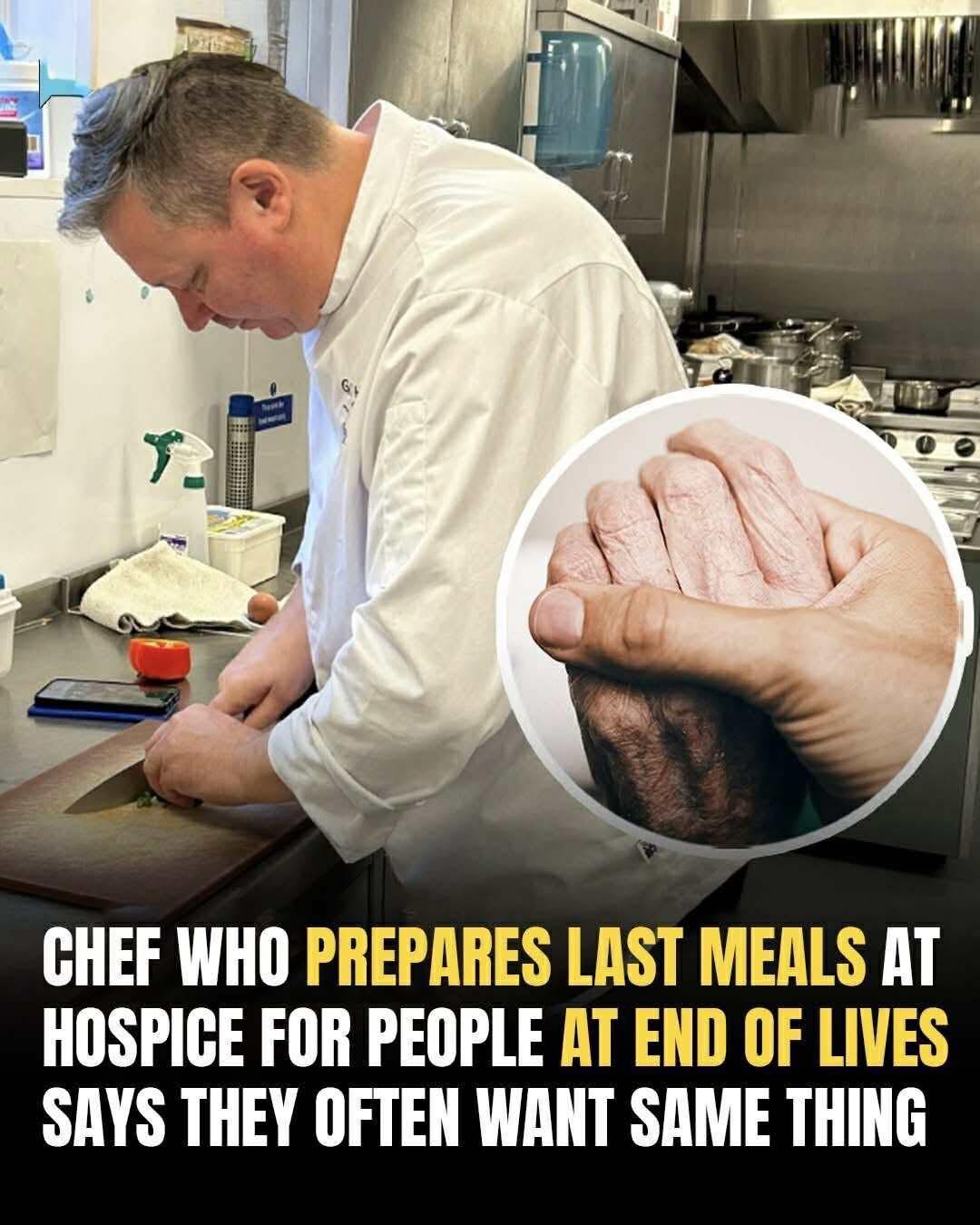At a hospice in Oxfordshire, chef Spencer Richards has found a deeper purpose in his profession, one that goes far beyond preparing food—it’s about bringing comfort, dignity, and even joy to those who are nearing the end of their lives. For Richards, cooking for patients in palliative care is not just another kitchen job, it’s a calling, a chance to make someone’s final days a little bit warmer and a little bit brighter through the simple, universal power of food.

Speaking with the Mirror, Richards shared that he considers it an incredible privilege to serve someone their last meals. Each plate he prepares carries emotional weight and intention, tailored with care and compassion for individuals who are often in their most vulnerable moments. In one memorable instance, he recalled a young 21-year-old patient who struggled to connect with the hospice’s standard menu. The usual offerings didn’t appeal to him, and understandably so—he was young and had different tastes than many of the older patients. So Richards did what he does best: he talked with the patient, found out what he liked, and learned that he was a fan of street food. Without hesitation, Richards made it happen, crafting a meal that felt familiar, enjoyable, and personal. It’s this attention to the human being behind the diagnosis that defines his work.
Another moment that stuck with him was preparing a birthday cake for a 93-year-old woman who had never had one before. Raised in a traditional home where birthdays weren’t celebrated, this small gesture carried enormous emotional weight. When Richards and his team surprised her with the cake, she broke down in tears—tears of joy, gratitude, and perhaps a little wonder at experiencing something so ordinary yet so deeply meaningful for the first time.
According to Richards, birthday cakes are among the most requested items at Sobell House Hospice, especially for patients who know they won’t be celebrating another. These little things—a slice of cake, a favorite dish, a conversation about what food once meant to them—become incredibly significant. They offer connection, comfort, and a sense of being seen and valued. “They’re small things,” Richards explained, “but especially for people who’ve been isolated or are feeling lonely, they mean a lot.” Beyond emotional connection, Richards is deeply aware of the physical challenges his patients face.
Many are on medications or treatments that alter their sense of taste, and as they near the end of life, they may lose the ability to swallow. This means that every dish he prepares must not only taste good, but also be tailored to specific medical needs. He’s constantly adapting recipes and presentation to meet these shifting realities. One observation Richards has made is that many patients, particularly those with cancer, develop a sweet tooth. At the same time, their tolerance for salt often decreases, so flavoring has to be adjusted accordingly. It’s a delicate balance, but one he approaches with sensitivity and skill. “Food is a powerfully emotive medium,” he said. “It can summon childhood memories and create new lasting ones. That’s what we do here.” At its heart, his work is about much more than nutrition or presentation. It’s about humanity. It’s about reminding patients, many of whom are grappling with pain, fear, and isolation, that they still matter—that someone is listening, caring, and willing to make the effort to bring a little happiness into their day. The dishes he creates are not just meals; they’re emotional touchstones, opportunities for connection, and acts of love. In a place often associated with sorrow and final goodbyes, Richards brings warmth, comfort, and even celebration through the universal language of food. Every cake, every carefully prepared plate, is his way of saying: you are not forgotten, you are not alone. His story is a beautiful reminder that kindness, when delivered with intention and care, has the power to nourish far more than just the body. It feeds the soul.





